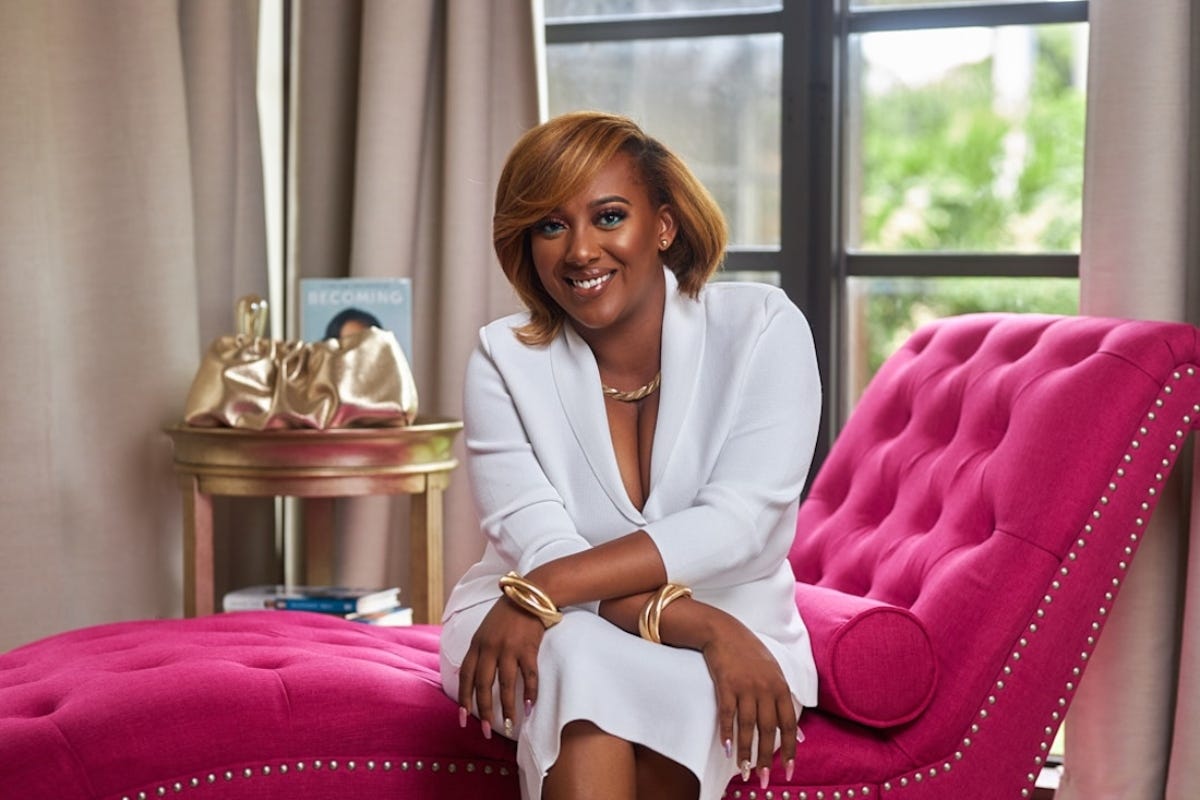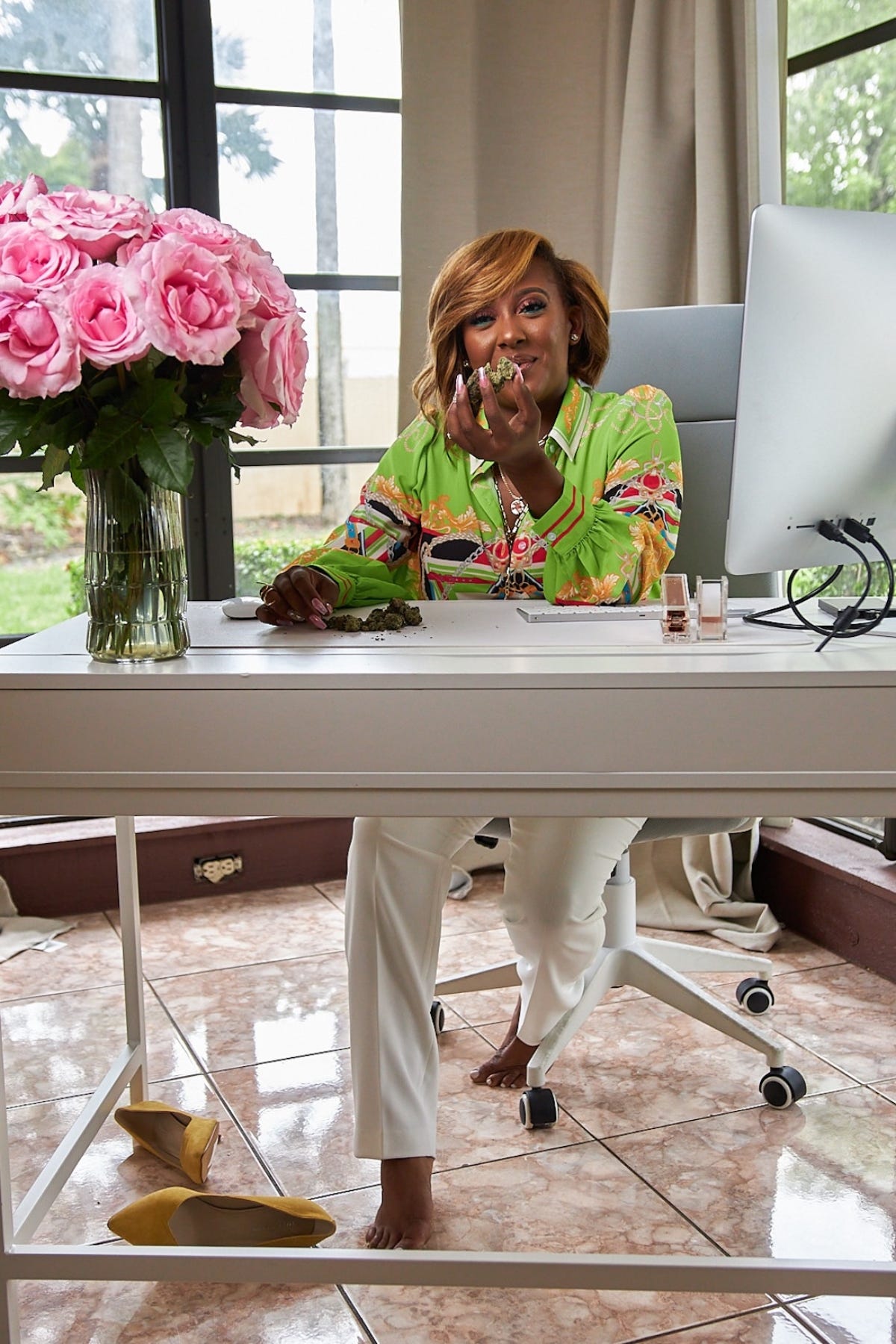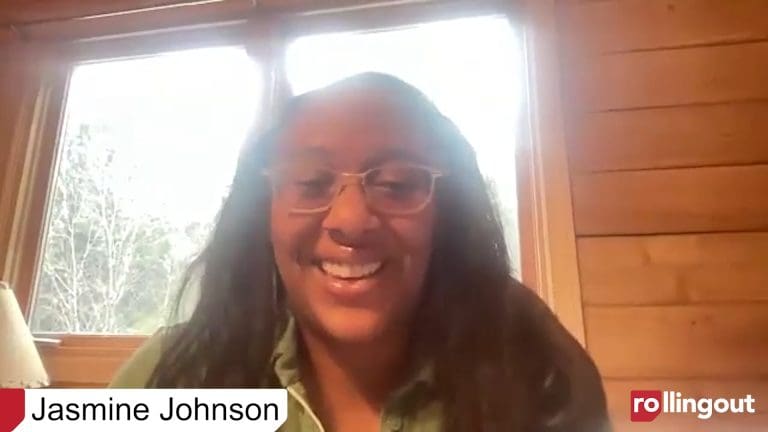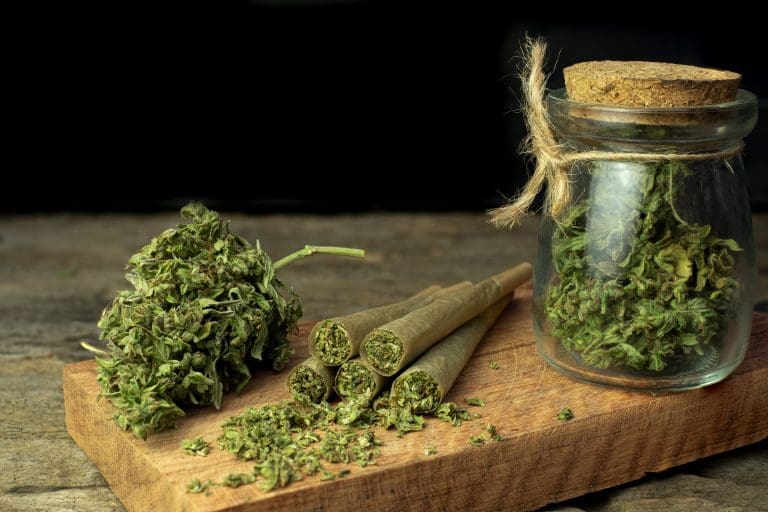
It’s More Real Estate Than Cannabis: I quickly learned that cannabis is as much about real estate as it is about the plant. In Florida, zoning, permitting, and buildouts are what make or break your ability to open a dispensary. Securing the right site sometimes feels harder than cultivating the plant itself.
With over 15 years of experience spanning cannabis, real estate, hospitality, and special events, Johnson is redefining what it means to lead with purpose, equity, and innovation in regulated industries. A proud Miami native and Florida A&M alum, Johnson launched her first business at just 18 years old. She went on to make her mark in the hospitality world by co-founding Crescendo Jazz & Blues Lounge, a cultural landmark and community anchor in South Florida that hosted 300+ high-impact events, from political town halls to iconic celebrations. As CEO of GŪD Essence (formerly Green Essence Florida), Johnson has spent the past five years building a vertically integrated cannabis company rooted in cultural impact, research partnerships, and economic inclusion. Under her leadership, the company is launching dispensaries across Florida, constructing a state-of-the-art cultivation and processing campus, and creating a workforce development pipeline aimed at generating 5,000+ jobs.
Thank you so much for doing this with us! Can you tell us the “backstory” about what brought you to the cannabis industry?
Iwas first introduced to cannabis out of pure curiosity. I started consuming in high school around the age of 16, and I remember my first experience as being magical and transcendent. Cannabis has always allowed me to tap into that inspirational, free-spirited, life-loving side of myself — even as I’ve balanced being a sharp, ambitious businesswoman.
My true entry into the Florida cannabis space, though, came through my late mentor, Norbert Seals. He was a powerhouse in big business and government relations, and when cannabis came to the forefront in Florida, he helped me see its potential. We formed our group shortly after the first five licenses were awarded. When he passed, the decision to continue became deeply personal because he told me this industry would change our lives and the lives of everyone involved. I carry that with me to this day.
Can you share the most interesting story that happened to you since you began leading your company? Can you tell us what lesson you learned from that?
One of the most interesting lessons I’ve learned as a leader is that some people will fall off the team, even if you don’t want them to. At first, that was difficult for me to accept, because I wanted everyone who started with me to finish with me. But what I came to understand is that those departures create space for the right people to join.
When we lost our initial medical director, I was devastated at first. But then we met Dr. Anthony Hall, Dr. Brontë Hall, and Priest Douglas Smith — all pioneers who have spent over 30 years developing formulations for cancer, sickle cell, diabetes, and chronic pain. Their joining completely changed the trajectory of GŪD Essence. With them, we built a nucleus around medicine, clinical trials, and purpose. That moment cemented for me that this journey is bigger than business — it’s about truly advancing cannabis as medicine.
Can you share a story about the funniest mistake you made when you were first starting? Can you tell us what lesson you learned from that?
I’ve always promised to be transparent about my journey — the good and the bad. One of the funniest mistakes I made early on was thinking every shiny opportunity was real. I once got caught up with fraudulent investors who looked the part, sounded convincing, and promised the world. It turned out to be a scam. Look up Cameron Colvin.
At the time, it stung. But looking back, it makes me laugh because I was so eager that I ignored the red flags. We met at his office in Phoenix, before the eviction and in the back of my mind as an asset manager, I was surprised there were no file cabinets, amongst other things. The lesson I took from that is that due diligence isn’t optional. And more than that, everything that glitters isn’t gold. That experience toughened me up, sharpened my instincts, and forced me to put better contracts and processes in place.
Do you have a funny story about how someone you knew reacted when they first heard you were getting into the cannabis industry?
When I first told a family friend I was entering the cannabis industry, their response was, “So you’re opening a smoke shop?” I had to laugh because it showed me how much work still needs to be done in terms of public education. It also motivated me to make sure GŪD Essence is positioned as a medical, wellness, and research-driven brand — not just a retail operation. Those conversations remind me that part of our role as leaders is helping people see cannabis in a new light.
None of us are able to achieve success without some help along the way. Is there a particular person who you are grateful towards who helped get you to where you are? Can you share a story?
I’m most grateful to my parents. They believed in me when this was just an idea, and they went so far as to put up family real estate as collateral to secure the financing for our operation. That’s not something I take lightly, especially because my mom has always said she would never sell, over-leverage, or collateralize the assets in our family trust. Carrying that responsibility is both a weight and a motivator that pushes me every day.
My parents’ faith in me gave me the courage to keep going when it felt impossible, and it’s the foundation for everything I’m building now. My dad came from very little, completely self-made, and he’s as much a people person as he is a beast at the poker table. My mom is a no-nonsense businesswoman who has always been a force. I truly am the perfect blend of the two of them — persistence, discipline, charisma, and vision. My mom has always told me, “Failure is not an option.” That mindset has shaped my entire journey.
Are you working on any new or exciting projects now? How do you think that will help people?
Right now, we’re developing our cultivation and processing facility while preparing to launch four dispensaries across Florida. At the same time, we just launched GŪD Supply, which I’m especially excited about. Over the last eight years, I’ve traveled, met incredible people, and been introduced to amazing brands. One of the biggest lessons I’ve learned is that the true medical value in cannabis often comes from cannabinoids beyond just high-potency THC.
That realization made the light bulb go off — we need a marketplace that highlights these products. Many of the most effective, innovative brands don’t have the marketing budgets or resources to expand into new states, and that limits access for patients and consumers who could truly benefit. GŪD Supply gives them a platform while giving people access to the full spectrum of cannabis wellness.
We are also launching SUN GROWN, our proprietary product line inspired by rare Florida animals and botanicals. Each formulation is designed to deliver a unique effect — whether for stress relief, creativity, sleep, or meditation — because our goal is to help people discover what their body really needs. That’s what we mean when we say: let’s get to the essence of cannabis.
Beyond products and infrastructure, I’m equally proud of the workforce development pipeline we’re building. Our goal is to train Floridians for more than 5,000 jobs as we build our full business expansion. For me, this industry is not only about cannabis — it’s about equity, opportunity, and creating pathways to economic mobility for our communities.
Let’s now jump to the main core of our interview. Despite great progress that has been made we still have a lot more work to do to achieve gender parity in this industry. According to this report in Entrepreneur, less than 25 percent of cannabis businesses are run by women. In your opinion or experience, what 3 things can be done by a) individuals b) companies and/or c) society to support greater gender parity moving forward?
As a Black woman in cannabis, I’ve lived the imbalance firsthand. When I walk into certain rooms, I am often the only woman — and almost always the only Black woman — at the table. It’s a reminder that while progress has been made, we still have a long way to go.
I believe there are three levels of action we can take:
- Individuals: Sponsor women leaders, not just mentor them. It’s one thing to give advice, but it’s another to use your influence to get a woman into rooms and onto platforms she might otherwise be shut out of. I’ve had a few people do that for me, and it’s been life changing.
- Companies: Representation has to go beyond hiring women for entry-level or mid-level roles. We need women in the boardroom, on equity cap tables, in CEO and CFO seats. And companies should be intentional in building succession pipelines so leadership isn’t just a boys’ club with one token woman.
- Society: We need to normalize women in cannabis leadership through media, policy, and culture. Too often, the narrative around cannabis is male-driven. But the truth is, women — especially women of color — are building companies, shaping science, and changing communities. Our stories need to be told and supported at every level.

You are a “Cannabis Insider”. If you had to advise someone about 5 nonintuitive things one should know to succeed in the cannabis industry, what would you say? Can you please give a story or an example for each.
- It’s More Real Estate Than Cannabis: I quickly learned that cannabis is as much about real estate as it is about the plant. In Florida, zoning, permitting, and buildouts are what make or break your ability to open a dispensary. Securing the right site sometimes feels harder than cultivating the plant itself.
- Banking Is Still a Battle: Even though hemp and cannabis are federally differentiated, banks often treat them the same — with suspicion. I’ve had accounts closed overnight, simply because of the word “cannabis.” You need multiple banking options and contingency plans just to stay operational.
- Compliance Is Culture: I tell my team that compliance isn’t just a department — it’s part of our DNA. From seed-to-sale tracking to patient safety, one mistake can cost you your license. Embedding compliance into company culture early saves you from disasters later.
- Brand Story Matters: Products can be duplicated — flower, gummies, vapes. What can’t be duplicated is your story. Early on, I realized shareholders and customers connected with GŪD Essence not just because of what we sell, but because of who we are: a Florida-born, Black woman-led company rooted in culture, research, and community.
- Patience Is a Business Strategy: Licensing, approvals, and construction all take far longer than you think. I’ve learned to build patience into my business plan, not just my personality. My team calls me the “pivot queen” because every delay becomes an opportunity to reimagine and improve.
Can you share 3 things that most excite you about the cannabis industry?
- Generational Wealth & Equity: This industry is one of the few emerging markets where we can still shape who gets a seat at the table. What excites me most is the chance to create generational wealth and open doors for communities — especially Black and Brown communities — that were disproportionately impacted by prohibition. For me, this isn’t just about cannabis, it’s about rewriting the economic story for entire families.
- The Science of Cannabinoids: I’m fascinated by the potential of cannabinoids beyond THC — like CBG, CBN, and THCV. These compounds interact with the endocannabinoid system in ways we are only beginning to understand, and they hold promise for conditions like diabetes, chronic pain, and anxiety. The future of cannabis is not just about getting high — it’s about unlocking healing through science.
- Redefining Wellness Culture: Cannabis has the power to change how we think about wellness altogether. With GŪD Supply, for example, we’re creating a marketplace that highlights underrepresented brands and products so more people can access the full spectrum of cannabis wellness. We’re also launching SUN GROWN, a line rooted in Florida’s rare animals and botanicals, because wellness should reflect culture and place. That excites me — the chance to make cannabis both premium and accessible, while rooted in authenticity.
Can you share 3 things that most concern you about the industry? If you had the ability to implement 3 ways to reform or improve the industry, what would you suggest?
- Concern: Predatory financing and deals that exploit small operators.
→ Reform: Create state programs that provide fair financing and legal protections for minority- and women-owned businesses so that equity applicants can survive beyond the licensing phase.
- Concern: Lack of standardized testing across states.
→ Reform: Establish federal baseline standards for safety, quality, and labeling so consumers know exactly what they’re getting, no matter where they shop.
- Concern: Misguided focus on just “getting high.”
→ Reform: Shift the industry conversation toward wellness outcomes. Consumers should be guided to understand why they’re consuming — whether it’s for better sleep, stress relief, anxiety management, creativity, focus, therapy, or meditation. High-potency THC has value, but it’s not the cure-all. Our role as companies is to help people connect with the full spectrum of cannabinoids and what their bodies truly need. At GŪD Essence, our mission is exactly that — to get to the essence of cannabis.
What are your thoughts about federal legalization of cannabis? If you could speak to your Senator, what would be your most persuasive argument regarding why they should or should not pursue federal legalization?
If I could speak directly to my Senator, I’d say that federal legalization is about consistency and fairness. Right now, we have a patchwork of laws that confuses patients, frustrates businesses, and leaves billions in untapped economic potential. Federal legalization would create a level playing field, protect consumers with national standards, and finally unlock banking and investment that small businesses like mine desperately need.
The truth is, they got it wrong in the beginning — especially with how licensing, access, and equity were handled. Early cannabis programs often favored those with the deepest pockets or political connections, while leaving behind the very communities most harmed by prohibition. We have a chance now to get it right: to build a framework that prioritizes patient access, scientific research, fair competition, and real equity.
And for goodness’ sake, let’s call it cannabis. This plant produces cannabinoids that interact directly with the endocannabinoid system — one of the most common systems across all species, alongside the muscular, skeletal, and vascular systems. You can’t possibly connect the dots on a regulatory and medical level if we’re still calling it “marijuana.” The language has to evolve if the policy and the science are going to align.
Today, cigarettes are legal, but they are heavily regulated, highly taxed, and they are somewhat socially marginalized. Would you like cannabis to have a similar status to cigarettes or different? Can you explain?
Cannabis should never be regulated or stigmatized like cigarettes. Cigarettes were engineered to addict and harm. Cannabis is a natural plant that works with the body’s endocannabinoid system, one of the most important regulatory systems in human biology. When used responsibly, cannabis has the potential to restore balance, manage pain, and improve wellness.
That’s why it matters that we use the right language. If we continue to call it “marijuana,” we disconnect it from its science. This is cannabis. It produces cannabinoids — compounds with therapeutic effects backed by decades of clinical research. The way we speak about it should reflect its true medical and cultural value.
Can you please give us your favorite “Life Lesson Quote”? Can you share how that was relevant to you in your life?
“Persistence is undefeated.” That mantra has carried me through every season of my career. From opening my first business as a teenager to navigating setbacks to ultimately securing one of Florida’s limited cannabis licenses, persistence has been my greatest asset.
In this industry especially, doors don’t always open on the first knock — but if you keep showing up, eventually they do. My team even calls me the “pivot queen” because no matter what obstacle comes our way, I find a way to adjust and keep moving forward. For me, persistence isn’t just a mindset — it’s the strategy.
You are a person of great influence. If you could inspire a movement that would bring the most amount of good to the greatest amount of people, what would that be? You never know what your idea can trigger. 🙂
If I could spark a movement, it would be “Call It Cannabis.” This is about positioning cannabis as a force for healing, equity, and education. Too often, stigma has reduced the plant to slang terms and stereotypes. But when we elevate the conversation — by calling it cannabis, by talking about cannabinoids, and by educating people about the endocannabinoid system — we move from misconception to medicine.
Words matter. If society recognized that the endocannabinoid system is as central as the muscular or vascular systems, the entire narrative would shift. People would begin to see cannabis as a legitimate part of health and wellness, not as a vice. That’s the movement I want to lead: one that changes both the culture and the conversation.
And at its heart, this movement is about helping people discover their own relationship with cannabis — not just to “get high,” but to achieve better sleep, ease anxiety, spark creativity, improve focus, or deepen meditation. When we guide people to understand what their body truly needs, we get to the essence of cannabis. And that essence is where healing, opportunity, and culture meet.
This was very inspiring. Thank you so much for joining us!





